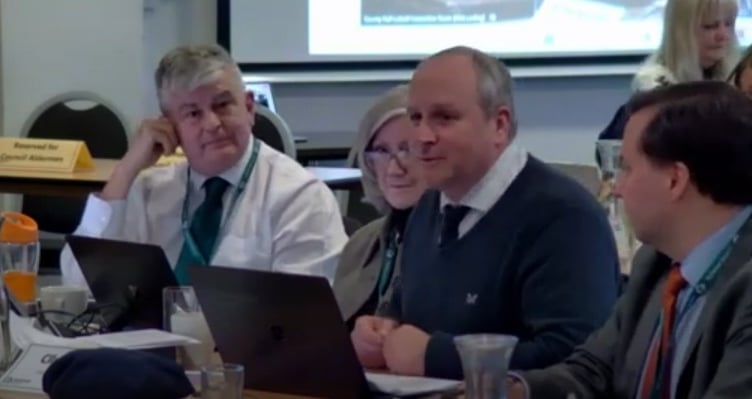BRIDGWATER town centre will be spared further roadworks as Somerset Council seeks to make it easier for buses to get around the town.
The council has published its updated bus service improvements plan (BSIP), with central government providing around £6.2m to enhance bus services through new infrastructure, subsidised fares and other measures.
As part of the BSIP, the council has pledged to explore creating a new ‘transport hub’ in the centre of Bridgwater (to complement the corresponding facility planned for Taunton) and to make changes to the town’s traffic signals to speed up journey times.
But officers have provided assurance that these signal upgrades can be carried out without additional lengthy roadworks – much to the relief of local councillors.
Councillor Mike Rigby, portfolio holder for economic development, planning and assets, made a plea against further roadworks when the council’s planning and transport policy sub-committee met in Taunton on February 11.
He said: “If we are going to do anything in Bridgwater, can we try and roll it out really quickly?
“We’ve got a lot of stuff ongoing in Bridgwater at the moment, and what I wouldn’t want to do is to finish all of that and then go back in and do some of the signals again.

“If there’s an opportunity to roll that into what’s going on now, I think the people of Bridgwater would appreciate that.”
Bridgwater is currently the subject to three major sets of concurrent roadworks: the delivery of the Celebration Mile in three sections of the town centre (funded by the Bridgwater town deal), the upgrade to the Dunball roundabout (funded by the government’s levelling up fund), and energy infrastructure upgrades to unlock the new ‘gigafactory’ near Puriton (funded by Agratas).
The disruption of these roadworks has led local councillor Diogo Rodrigues to call for local businesses to be compensated for loss of earnings – a request which the council has no legal duty to meet.
Natasha Bates, the council’s service manager for passenger transport commissioning, promised that any changes to Bridgwater’s traffic signals would not involve any major roadworks.
She elaborated: “The system that we’re looking at using for that is a technology-based system – it doesn’t actually involve any invasive work.
“We would be looking to change the infrastructure in the signal boxes, rather than coming along and building bus lanes.”
Mr Rigby responded: “I can feel the wave of relief from Bridgwater washing over as you say that.”
In addition to tweaking Bridgwater’s traffic signals, the revised BSIP commits to a feasibility study being carried out into creating a new ‘transport hub’ for the town – possibly to replace the existing bus and coach station on Watsons Lane.
The new £2.7m Taunton hub – which will be delivered on the former Tower Street bus station site before the end of the year – will include new interchanges for bus and coach services, electric vehicle charging points, new waiting areas for passengers bike storage and repair facilities, e-scooter facilities, taxi bays and connections to the town’s walking and cycling network.
Ms Bates said: “Over the next 12 months, we will be looking at Bridgwater’s evening services, other service improvements and trials, and a feasibility study for a Bridgwater transport hub.”
Any Bridgwater hub would not be delivered before the end of the financial year, since the Department for Transport (DfT) has only provided a one-year funding settlement for the council.
A multi-year settlement for local authorities – including transport funding – is expected to be provided by the government from 2026, following the conclusion of the spending review in the spring, initial recommendations from the Casey commission on the future funding of social care, and the autumn budget.




